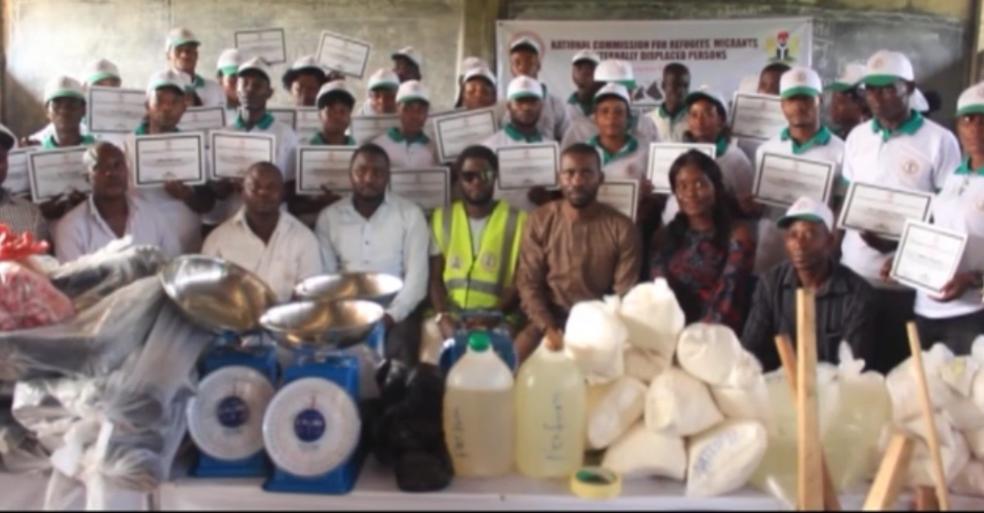By CrossRiverWatch Admin
The federal government says it will continue to train internally displaced persons on the need to engage on some form of economic activity to better their lives.
This commitment was made earlier this week at the Akwa Ikot Eyo Edem and Ikot Effiom Obutong camps for returnees of the Bakassi peninsula which was ceded off to the Cameroon from Nigeria by a judgment of the International Court of Justice on October 10, 2002.
The returnees, despite several international treaties and agreements have been reportedly subjected to abuse of human rights and neglect by the governments of both countries with the returnees in the newly carved out Bakassi local government area said to be suffering due to the embezzlement, misappropriation and corruption surrounding the billions of Naira budgeted for their resettlement.
However, the returnees saw another glimmer of hope as the National Commission for Refugees, Migrants and Internally Displaced Commission recently trained about three dozen returnees on some economic skill in order to be able to fend for themselves according to the procurement officer of the commission, Mr. Richard Abia.
Mr. Abia led other senior staff of the commission to both camps to present certificates and starter kits to the beneficiaries which he said numbered 35 even as he explained the rationale behind the exercise.
“We carry out series of trainings for them to ensure that they have a means of livelihood,” Abia said.
The items donated include measurement scales, soap mixers, safety kits, soap making chemicals and 7600kva power generating sets which according to Mr. Abia, will empower them so that “they can fend for themselves and they can engage in some economic activity.”
The inhabitants of the peninsula were predominantly fishermen. But, the transfer of sovereignty also meant a new means of livelihood as many don’t have skills other than fishing. And, almost two decades on, the sentiment still resides in the minds of the returnees.
While some recipients expressed happiness, others asked for more to be done.
“This training has helped us a lot because we will be able to use our hands to produce things that we will be able to sell,” said Mrs. Aniekeme Effiong.
But for Daniel Hanson, this was just a tip off the iceberg expected by the people as they look forward to government at all levels.
“Government still needs to help us so that we can climb a good ladder,” he told press men.
It is expected that more of such programs are initiated and implemented especially as restiveness has been identified as a key factor between members of the camps, returnees and their host communities as well as the politicking of the true population of indigenes of that local government area
Since You Are Here, Support Good JournalismCrossRiverWatch was founded on the ideals of deploying tech tools to report in an ethical manner, news, views and analysis with a narrative that ensures transparency in governance, a good society and an accountable democracy. Everyone appreciates good journalism but it costs a lot of money. Nonetheless, it cannot be sacrificed on the altar of news commercialization. Consider making a modest contribution to support CrossRiverWatch's journalism of credibility and integrity in order to ensure that all have continuous free access to our noble endeavor. CLICK HERE |
New Feature: Don't miss any of our news again.Get all our articles in your facebook chat box.Click the Facebook Messenger Icon below to subscribe now
Text Advert by CRWatch :Place Yours

Will You To Learn How To Make Millions Of Naira Making Special Creams From Your Kitchen?.Click Here
Expose Your Business And Make More Sales. Advertise On CrossRiverWatch.com Today




Leave feedback about this